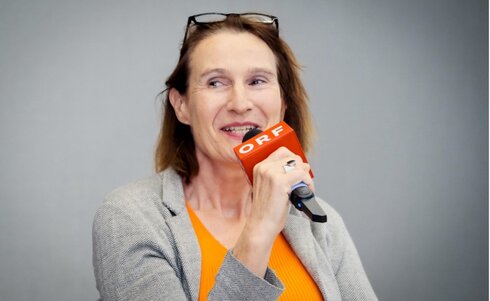Democracy is at stake: countermeasures, but how?
With Prebunking, Media Literacy, Journalism as a Public Good, and the Voice of Youth Against Disinformation in the Big Election Year of 2024
As early as July 2016, Hamburg’s weekly newspaper Die Zeit ran a worried headline announcing that “The Fight For Democracy” had begun. This was a period marked by a dangerous growth in populism, in view of modern ‘Pied Pipers’ succeeding in unsettling parts of the population with their simplified messages and engendering an unwillingness to believe the truth.
Over the last few years, this agitation against the ‘fake news media’ has created a hostile information and communication environment in the parallel digital world of social media. It has been fuelled by the Covid pandemic, the denial of man-made climate change, sensitive immigration issues and religious controversies, terrorist recruitment on the Internet, smear campaigns and hate tirades against dissenters, and through strategically controlled disinformation spread by totalitarian regimes as opponents of our liberal world order. The effect has been to put our hard-won civilizational achievements under increasing pressure.
As the result of collective complacency and ignorance with regard to the stability of our political system, our democracies have failed for years to apply the ethical standards by which we shaped our societies in the pre-digital age to the Internet which, until recently, was considered a medium of liberation and empowerment for all those without a voice. In his recent interview with the British news magazine The Economist at the Elysée Palace in Paris on 2 May 2024, French President Emmanuel Macron spoke of Europe being in mortal danger, fearing our European project could break apart should we fail to take immediate countermeasures. In his apocalyptic vision of Europe’s future, he references historian Marc Bloch in drawing a comparison with the French elites in the interwar period who, in their complacency, did not recognize the imminent danger posed by German totalitarianism.
Institutions and think tanks including the European Digital Media Observatory (EDMO), GLOBSEC, and the East Stratcom Task Force (EUvsDisinfo) are deeply immersed in the subject. According to them, we can expect a huge rise in targeted disinformation campaigns aimed at destabilizing our democracies and deepening the social rifts in Western and Eastern Europe in the big election year of 2024. In one of their recent articles, the East Stratcom Task Force writes that “elections are battlefields for the Kremlin”. The World Economic Forum’s Global Risk Report 2024 also classifies disinformation as the primary global risk in the next two years – see the article by Andy Demeulenaere in this newsletter.
For several years now, AIT’s Center for Digital Safety and Security has focused on the threats digitalization poses to society. We have been building up technological expertise to identify and limit disinformation, also with the help of data science and artificial intelligence (AI). But we know only too well that AI is a double-edged sword. Although it allows entire troll factories to spread false information with even greater precision and in a manner which is even more difficult to detect, it is also a tool with which defence strategies can be made much more effective. For years, I have been able to use this OVE-GIT newsletter to share the experience AIT has gained in researching and developing safety and security solutions with a wider audience.
Protecting democracy against subversive infiltration and the deliberate division of our societies governed by the rule of law is an enormously complex task encompassing many areas of action. If we wish to succeed in this grand endeavor, we must supplement purely technological developments with expertise drawn from other disciplines. This requires that we broaden our research community to include initiatives from the social sciences and humanities, such as psychology. To create a strong civil society, we must also incorporate serious journalism as a bulwark in the fight to preserve democracy, and educate everyone to understand the importance of freedom, democratic values, and the sanctity of human dignity. Only when all sectors of society come together to create a new social enlightenment can the state develop a strategy encompassing society in its entirety to protect democracy.
This newsletter presents thought leaders with four different approaches to countering disinformation. They outline their thoughts about combatting loss of trust, acquiring media literacy, advocating for journalism as a public good, and exploring how to encourage young people to actively read the news and re-engage with the political debate. This time, the authors are from England, Belgium, Germany, and Italy.
The newsletter opens with an article by social psychologist Melisa Basol, titled “Building Resilience Against Misinformation in a Monumental Election Year”. Starting from the hypothesis that “distrust has become society’s default emotion”, she examines the reasons why, in the age of social media and AI, people are increasingly less able to decide what they should believe. Melisa Basol is a Forbes 30 under 30 Honoree and, together with scientists including Sander van der Linden at the University of Cambridge, has researched prebunking as a method of psychologically inoculating society against disinformation, and describes this innovative approach in her essay. She recently founded Pulse, an innovation lab in England for human-centred innovation.
The second newsletter article is written by Andy Demeulenaere, who, as General Coordinator of Mediawijs, the Flemish Knowledge Centre for Digital and Media Literacy in Brussels, has been setting initiatives against cyberbullying, online hate speech and disinformation for many years. In his “Reflections on Acquiring Media Literacy to Safeguard Our Democracies”, he examines in detail the scientific construction of media literacy in all its facets before exploring the essential role of this vital skill and new educational cornerstone in the fight against misinformation.
The third essay was contributed by Renate Schroeder, Director of the European Federation of Journalists, titled “Stand up for Journalism as a Public Good”. In her remarks, the German political scientist starts with the apparent erosion of the protection of freedom of expression, before touching on European legislation such as the European Media Freedom Act, which also includes an important article on the protection of journalists and restricting the use of spyware. She concludes with a fervent plea for restoring trust in journalism. She is convinced the best antidote to misinformation is independent, professional, and serious journalism.
Last but not least, the final article of this thematically wide-ranging newsletter comes from the pen of Lavina Dori, currently completing her Ph.D. in Communication Sciences at the Università degli Studi di Firenze (Unifi, Italy). In “The Voices of Young People Are Worth Being Heard in the European Political Debate” she reflects on the reasons why young people feel disillusioned with traditional politics and, almost apathetically, turn their backs on the news provided by conventional mass media. In the second part of her article, she offers possible answers to the question of how to encourage young Europeans to re-engage in political discourse. They include monitoring conversations and trends on relevant platforms, and new storytelling formats tailored to the target group.
And finally, as always, all that remains for me to do is to invite all interested readers to immerse themselves in these fascinating articles, with the hope that you will gain many new insights into how to deal with disinformation, especially in view of the upcoming elections to the European Parliament in June.
Yours,
Helmut Leopold




